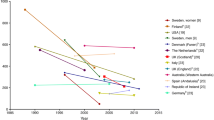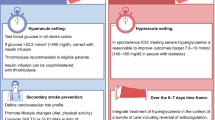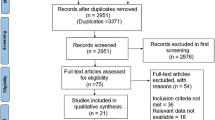Abstract
Diabetics are at high risk for atherosclerotic cardiovascular disease (ASCVD) and are considered a coronary heart disease risk equivalent. The utility of aspirin in primary prevention of ASCVD in diabetic patients has been widely studied and is still debated. Overall, the current evidence suggests a modest benefit for reduction in ASCVD events with the greatest benefit among those with higher baseline risk, but at the cost of increased risk of gastrointestinal bleeding. Diabetic patients at higher risk (with 10-year ASCVD risk >10 %) are generally recommended for aspirin therapy if bleeding risk is felt to be low. A patient-provider discussion is recommended before prescribing aspirin therapy. Novel markers such as coronary artery calcium scores and high-sensitivity C-reactive protein may help refine ASCVD risk prediction and guide utility for aspirin therapy. This article will review the literature for the most up-to-date studies evaluating aspirin therapy for primary prevention of ASCVD in patients with diabetes.


Similar content being viewed by others
References
Papers of particular interest, published recently, have been highlighted as: • Of importance
Diabetes atlas. http://www.idf.org/diabetesatlas. Accessed on 9 May 2014.
CDC. National Diabetes Surveillance System: national diabetes fact sheet, 2011. Atlanta, GA: US Department of Health and Human Services, CDC; 2011. Available at http://www.cdc.gov/diabetes/pubs/pdf/ndfs_2011.pdf. Accessed on 9 May 2014.
Narayan KM, Boyle JP, Geiss LS, Saaddine JB, Thompson TJ. Impact of recent increase in incidence on future diabetes burden: U.S., 2005–2050. Diabetes Care. 2006;29:2114–6.
Geiss LS, Pan L, Cadwell B, Gregg EW, Benjamin SM, Engelgau MM. Changes in incidence of diabetes in U.S. adults, 1997–2003. Am J Prev Med. 2006;30:371–7.
Kannel WB, McGee DL. Diabetes and cardiovascular risk factors: the Framingham study. Circulation. 1979;59(1):8.
Haffner SM, Lehto S, Ronnemaa T, Pyoralak I, Laakso M. Mortality from coronary heart disease in subjects with type 2 diabetes and in nondiabetic subjects with and without prior myocardial infarction. NEJM. 1998;339(4):229.
National Cholesterol Education Program (NCEP. Expert panel on detection, evaluation, and treatment of high blood cholesterol in adults (Adult Treatment Panel III). Third Report of the National Cholesterol Education Program (NCEP) Expert panel on detection, evaluation, and treatment of high blood cholesterol in adults (Adult Treatment Panel III) final report. Circulation. 2002;106(25):3143.
De Backer G, Ambrosioni E, Borch-Johnsen K, Brotons C, Cifkova R, Dallongeville J, et al. European guidelines on cardiovascular disease prevention in clinical practice: third joint task force of European and other societies on cardiovascular disease prevention in clinical practice (constituted by representatives of eight societies and by invited experts). Eur J Cardiovasc Prev Rehabil. 2003;10(4):S1.
Clarkson P, Celermajer DS, Donald AE, et al. Impaired vascular reactivity in insulin-dependent diabetes mellitus is related to disease duration and low density lipoprotein cholesterol levels. J Am Coll Cardiol. 1996;28:573.
Mäkimattila S, Virkamäki A, Groop PH, et al. Chronic hyperglycemia impairs endothelial function and insulin sensitivity via different mechanisms in insulin-dependent diabetes mellitus. Circulation. 1996;94:1276.
Di Carli MF, Janisse J, Grunberger G, Ager J. Role of chronic hyperglycemia in the pathogenesis of coronary microvascular dysfunction in diabetes. J Am Coll Cardiol. 2003;41:1387.
Miura H, Wachtel RE, Loberiza Jr FR, et al. Diabetes mellitus impairs vasodilation to hypoxia in human coronary arterioles: reduced activity of ATP-sensitive potassium channels. Circ Res. 2003;92:151.
Kawano H, Motoyama T, Hirashima O, et al. Hyperglycemia rapidly suppresses flow-mediated endothelium-dependent vasodilation of brachial artery. J Am Coll Cardiol. 1999;34:146.
Quiñones MJ, Hernandez-Pampaloni M, Schelbert H, et al. Coronary vasomotor abnormalities in insulin-resistant individuals. Ann Intern Med. 2004;140:700.
Hsueh WA, Lyon CJ, Quiñones MJ. Insulin resistance and the endothelium. Am J Med. 2004;117:109.
Mather KJ, Verma S, Anderson TJ. Improved endothelial function with metformin in type 2 diabetes mellitus. J Am Coll Cardiol. 2001;37:1344.
Winocour PD. Platelet abnormalities in diabetes mellitus. Diabetes. 1992;41 Suppl 2:26.
Davì G, Catalano I, Averna M, et al. Thromboxane biosynthesis and platelet function in type II diabetes mellitus. N Engl J Med. 1990;322:1769.
Calverley DC, Hacker MR, Loda KA, et al. Increased platelet Fc receptor expression as a potential contributing cause of platelet hypersensitivity to collagen in diabetes mellitus. Br J Haematol. 2003;121:139.
Shechter M, Merz CN, Paul-Labrador MJ, Kaul S. Blood glucose and platelet-dependent thrombosis in patients with coronary artery disease. J Am Coll Cardiol. 2000;35:300.
Ostermann H, van de Loo J. Factors of the hemostatic system in diabetic patients. A survey of controlled studies. Haemostasis. 1986;16:386.
Saito I, Folsom AR, Brancati FL, et al. Nontraditional risk factors for coronary heart disease incidence among persons with diabetes: the Atherosclerosis Risk in Communities (ARIC) study. Ann Intern Med. 2000;133:81.
Stec JJ, Silbershatz H, Tofler GH, et al. Association of fibrinogen with cardiovascular risk factors and cardiovascular disease in the Framingham offspring population. Circulation. 2000;102:1634.
Gray RP, Patterson DL, Yudkin JS. Plasminogen activator inhibitor activity in diabetic and nondiabetic survivors of myocardial infarction. Arterioscler Thromb. 1993;13:415.
McGill JB, Schneider DJ, Arfken CL, et al. Factors responsible for impaired fibrinolysis in obese subjects and NIDDM patients. Diabetes. 1994;43:104.
Moreno PR, Murcia AM, Palacios IF, et al. Coronary composition and macrophage infiltration in atherectomy specimens from patients with diabetes mellitus. Circulation. 2000;102:2180.
Vane JR. Inhibition of prostaglandin synthesis as a mechanism of action for aspirin-like drugs. Nat New Biol. 1971;231:232–5.
Hennekens CH, Schneider WR, Pokov A, et al. A randomized trial of aspirin at clinically relevant doses and nitric oxide formation in humans. J Cardiovasc Pharmacol Ther. 2010;15:344.
Antithrombotic Trialists’ Collaboration. Collaborative metaanalysis of randomised trials of antiplatelet therapy for prevention of death, myocardial infarction, and stroke in high risk patients. BMJ. 2002;324:71–86.
Pignone M, Alberts MJ, Colwell JA, et al. Aspirin for primary prevention of cardiovascular events in people with diabetes: a position statement of the American Diabetes Association, a scientific statement of the American Heart Association, and an expert consensus document of the American College of Cardiology Foundation. Diabetes Care. 2010;33:1395–402. This is a key guideline on this topic and perhaps the best reference to date on this subject. This expert consensus panel was jointly put together by the ADA, AHA, ACC, succinctly summarizes the evidence, and provides recommendations for clinicians.
Peto R, Gray R, Collins R, et al. Randomised trial of prophylactic daily aspirin in British male doctors. BMJ. 1988;296:313–6.
Steering Committee of the Physicians’ Health Study Research Group. Final report on the aspirin component of the ongoing physicians’ health study. N Engl J Med. 1989;321:129–35.
The Medical Research Council’s General Practice Research Framework. Thrombosis prevention trial: randomized trial of low-intensity oral anticoagulation with warfarin and low-dose aspirin in the primary prevention of ischaemic heart disease in men at increased risk. Lancet. 1998;351:233–41.
Hansson L, Zanchetti A, Carruthers SG, et al. Effects of intensive blood-pressure lowering and low-dose aspirin in patients with hypertension: principal results of the hypertension optimal treatment (HOT) randomized trial. Lancet. 1998;351:1755–62.
Collaborative Group of the Primary Prevention Project (PPP). Low-dose aspirin and vitamin E in people at cardiovascular risk: a randomized trial in general practice. Lancet. 2001;357:89–95.
Ridker PM, Cook NR, Lee IM, et al. A randomized trial of low-dose aspirin in the primary prevention of cardiovascular disease in women. N Engl J Med. 2005;352:1293–304.
Fowkes F, Price J, Stewart M, et al. Aspirin for prevention of cardiovascular events in a general population screened for a low ankle brachial index. JAMA. 2010;303(9):841–8.
Ikeda Y, Shimada K, Teramoto T, et al. Low-dose aspirin for primary prevention of cardiovascular events in Japanese Patients 60 years or older with atherosclerotic risk factors. JAMA 2014;312(23):2510–20. This study did not find a benefit for low dose aspirin for reduction in ASCVD events among older Japanese patients with ASCVD risk factors. Notably, the outcomes were low in both arms (<3% cumulative 5-year event rate)
Investigators ETDRS. Aspirin effects on mortality and morbidity in patients with diabetes mellitus: early treatment diabetic retinopathy study report 14. JAMA. 1992;268:1292–300.
Ogawa H, Nakayama M, Morimoto T, et al. Low-dose aspirin for primary prevention of atherosclerotic events in patients with type 2 diabetes. JAMA. 2008;300:2134–41. Although diabetics were widely considered to be a CHD-risk equivalent and recommended for aspirin therapy, this landmark study challenged this recommendation. Low dose aspirin did not reduce ASCVD events among primary prevention diabetics, although event rate was lower than anticipated.
Belch J, MacCuish A, Campbell I, et al. The prevention of progression of arterial disease and diabetes (POPADAD) trial: factorial randomized placebo controlled trial of aspirin and antioxidants in patients with diabetes and asymptomatic peripheral arterial disease. BMJ. 2008;337:a18400. Along with JPAD, this other primary prevention trial of diabetics with subclinical peripheral arterial disease also surprisingly did not find a benefit for aspirin therapy. Use of other preventive therapies such as statins may have blunted the incremental benefit of aspirin.
Antithrombotic Trialists’ Collaboration. Aspirin in the primary and secondary prevention of vascular disease: collaborative meta-analysis of individual participant data from randomized trials. Lancet. 2009;373:1849–60.
Seshasai S, Wijesuriya S, Sivakumaran R, et al. Effect of aspirin on vascular and nonvascular outcomes. Meta-analysis of randomized controlled trials. Arch Intern Med. 2012;172(3):209–16.
Zhang C, Sun A, Zhang P, et al. Aspirin for primary prevention of cardiovascular events in patients with diabetes: a meta-analysis. Diabetes Res Clin Pract. 2010;87:211–8.
Xie M, Shan Z, Zhang Y, et al. Aspirin for primary prevention of cardiovascular events: meta-analysis of randomized controlled trials and subgroup analysis by sex and diabetes status. PLoS One. 2014;9(10):e90286.
Events in diabetes. https://clinicaltrials.gov/ct2/show/NCT00135226. Accessed 18 Dec 2014.
Soejima H, Ogawa H, Morimoto T, et al. Aspirin reduces cerebrovascular events in type 2 diabetic patients with poorly controlled blood pressure. Subanalysis from the JPAD trial. Circ J. 2012;76(6):1526–32.
Soejima H, Ogawa H, Morimoto T, et al. Aspirin possibly reduces cerebrovascular events in type 2 diabetic patients with higher C-reactive protein level: subanalysis from the JPAD trial. J Cardiol. 2013;62(3):165–70.
Greenland P, Alpert J, Beller G, et al. 2010 ACCF/AHA guideline for assessment of cardiovascular risk in asymptomatic adults. Circulation. 2010;122:2748–64.
Miedema MD, Duprez DA, Misialek JR, et al. Use of coronary artery calcium to guide aspirin utilization for primary prevention: estimates from the multi-ethnic study of atherosclerosis. Circ Cardiovasc Qual Outcomes. 2014;7(3):453–60.
Wong ND, Nelson JC, Granston T, et al. Metabolic syndrome, diabetes, and incidence and progression of coronary calcium: the multiethnic study of atherosclerosis study. JACC Cardiovasc Imaging. 2012;5(4):358–66.
Malik S, Budoff MJ, Katz R, et al. Impact of subclinical atherosclerosis on cardiovascular disease events in individuals with metabolic syndrome and diabetes: the multi-ethnic study of atherosclerosis. Diabetes Care. 2011;34(10):2285–90.
Silverman M, Blaha M, Budoff M, et al. Potential implications of coronary artery calcium testing for guiding aspirin use among asymptomatic individuals with diabetes. Diabetes Care. 2012;35(3):624–6. This study showed how coronary artery calcium scores could aid in identifying diabetics who may most and least benefit from aspirin therapy for primary prevention.
Kearney P, Blackwell L, Collins R, et al. Efficacy of cholesterol lowering therapy in 18,686 people with diabetes in 14 randomised trials of statins: a meta-analysis. Lancet. 2008;371:117–25.
Hennekens C, Sacks F, Tonkin A, et al. Additive benefits of pravastatin and aspirin to decrease risks of cardiovascular disease: randomized and observational comparisons of secondary prevention trials and their meta-analyses. Arch Intern Med. 2004;164:40–4.
Macchia A, Laffaye N, Comignani P, et al. Statins but not aspirin reduce thrombotic risk assessed by thrombin generation in diabetic patients without cardiovascular events: the RATIONAL trial. PLoS One. 2012;7(3):e32894.
DeBeradis G, Sacco M, Evangelista V, et al. ACCEPT-D study group. Aspirin and Simvastatin combination for cardiovascular events prevention trial in diabetes (ACCEPT-D): design of a randomized study of the efficacy of low-dose aspirin in the prevention of cardiovascular events in subjects with diabetes mellitus treated with statins. Trials. 2007;8:21.
Halvorsen S, Andreotti F, ten Berg JM, et al. Aspirin therapy in primary cardiovascular disease prevention. A position paper of the European Society of Cardiology working group on thrombosis. J Am Coll Cardiol. 2014;64:319–27.
Compliance with Ethics Guidelines
Conflict of Interest
Dhaval Desai, Haitham M. Ahmed, and Erin D. Michos declare that they have no conflict of interest.
Human and Animal Rights and Informed Consent
This article does not contain any studies with human or animal subjects performed by any of the authors.
Author information
Authors and Affiliations
Corresponding author
Additional information
This article is part of the Topical Collection on Diabetes and Cardiovascular Disease
Rights and permissions
About this article
Cite this article
Desai, D., Ahmed, H.M. & Michos, E.D. Preventing Cardiovascular Disease in Patients with Diabetes: Use of Aspirin for Primary Prevention. Curr Cardiol Rep 17, 13 (2015). https://doi.org/10.1007/s11886-015-0566-z
Published:
DOI: https://doi.org/10.1007/s11886-015-0566-z




